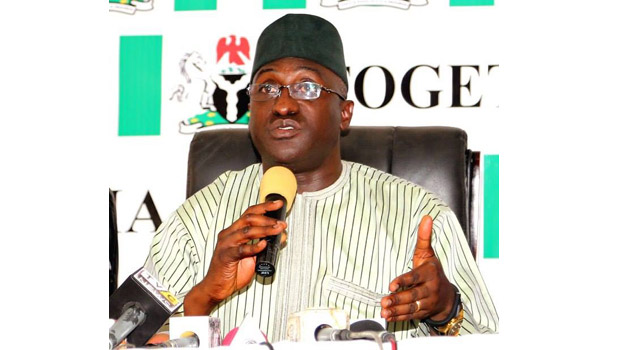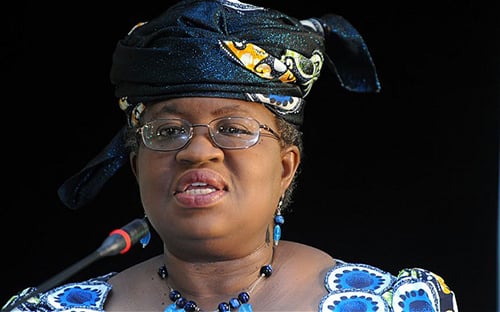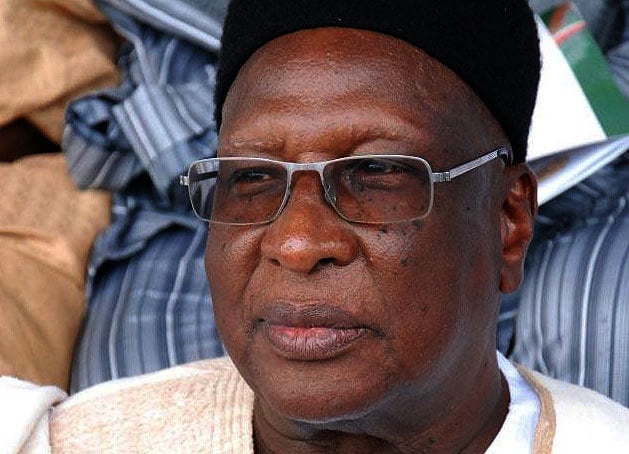With the first set of primary elections to choose candidates for the states’ House of Assembly concluded in the All Progressive Party this week, the political landscape is expectedly getting heated up.
It will get hotter as primaries for Governorship, National Assembly and Presidential elections hold subsequently. As the heat catches on, one word and two derivatives will dominate the lexicon – imposition; anointed and endorsed candidates. The imposition conundrum, without doubt, is what will shape the discourse around the 2015 elections, focusing on the old order versus the expected paradigm shift and the future of Nigeria’s democracy in general.
If we navigate through the haze and the hysteria, it will be apparent that the issue cuts across the two dominant parties, the APC and the Peoples Democratic Party. At the highest level, we have seen how the PDP reacted to the allegation of imposing President Goodluck Jonathan on members even after he had been endorsed as the sole candidate by the party and PDP governors. If it is the norm that an incumbent is expected to get an automatic ticket to avoid a vote-of-no-confidence on his government and his political party, it is also logical to expect PDP not to have sold nomination forms to aspirants if it did not intend to conduct a primary election, even if it is expected that the President would win.
The party’s agreement to accommodate the two other presidential aspirants may have saved it from accusation of politics of exclusion; yet, the manner in which some governors who want to proceed to the Senate in 2015 and federal legislators who desire to return for another term were given automatic approval in exchange for support for President Jonathan’s second-term bid and an endorsement of the present party leadership smacks of nothing but creative imposition.
Advertisement
Usually when the party signifies interest in a candidate or a particular decision, especially when it has the backing of the President or the governor of the state where applicable, the party would have its way. No matter how undemocratic it might seem, the party’s stand would be deemed the popular choice and dissention would always incur the party’s wrath, in which case the option to the dissatisfied is the exit door.
Perceived imposition of candidates and the allegations against it come in different shades. Another variant is what the four presidential aspirants in APC, with the exception of Muhammadu Buhari, are doing now by petitioning the party to shift the venue of the primary election from Lagos to Abuja. They are also complaining against Lagos fielding delegates from the 57 local development councils instead of the 20 that the constitution recognizes. In the wisdom of the aggrieved four apparently, Lagos could swing the votes in Buhari’s favour if the former Head of State is the ‘anointed candidate’ of APC’s national leader, Bola Tinubu, as being speculated.
However, it is at the governorship level that the thin line between anointed and imposed candidacy is being tested to the fullest. It affects both parties, evidently in states where the incumbent has served his tenure and will vacate office next year. The manner in which successors are being chosen, encouraged to run, anointed or endorsed, therefore, is now a ferocious subject of debate. From Kano to Niger state; down to Delta and Akwa Ibom and all the way down to Lagos, the stakes are high, the debate is fierce and the contest is keen over who emerges as flag-bearer.
Advertisement
To the aggrieved aspirant who is either an underdog or fails to secure the support of the party or a godfather, it is imposition if he is not the chosen one. This is the complaint we hear in Kano where Rabiu Kwakwanso is believed to have anointed his deputy; and in Niger state where Babangida Aliyu is said to be backing the Secretary to the State Government, Umar Nasko. All the other commissioners and political juggernauts who mistake their closeness to the governor and the party as special privilege now cry foul, feeling short-changed ostensibly for selfish reasons.
The debate gets more convoluted if the incumbent expresses interest in a technocrat as his successor. It won’t matter if such an anointed candidate is a bonafide party member and has probably gathered relevant experience in key public positions; or even if the process of his emergence is transparent. Nor would it matter if those crying imposition were once direct beneficiaries of the type of privilege they now find odious.
To those who see themselves as core politicians and who have developed a sense of entitlement, it must be imposition, and, therefore, unacceptable if such a technocrat successor is linked to the incumbent or an influential party leader. This is what we have in Akwa Ibom where Udom Emmanuel, who left his Executive Director job at Zenith Bank to be SSG, is seen as Governor Godswill Akpabio’s anointed candidate just because he fits the bill of the zoning formula that demands that Eket senatorial zone ought to produce the governor next year since Uyo and Ikot Ekpene have produced the previous and incumbent governors.
It is what Emmanuel Uduaghan faces in Delta State for seemingly endorsing a Permanent Secretary, Tony Obuh, instead of the hoard of Abuja-backed aspirants. And in Lagos, the situation is as similar as it is incomparable.
Advertisement
Akinwumi Ambode, the former Accountant General who, as the leading aspirant, has the nod of Tinubu and the party machinery, whereas the incumbent Governor Babatunde Fashola, who was a beneficiary of Tinubu’s endorsement seven years ago, is said to have his eyes on another candidate. Whose ‘imposition’ then becomes acceptable especially if some aspirants have an issue with testing their strength at the primaries?
In Lagos like elsewhere, the drumbeat of war is getting loud. Rebellion is palpable. Fear of imminent implosion is rife, if the seeming insurrection against party leadership succeeds.
But if it fails, to those who understand the politics of power, the consequences might be dire.
Advertisement
Add a comment






